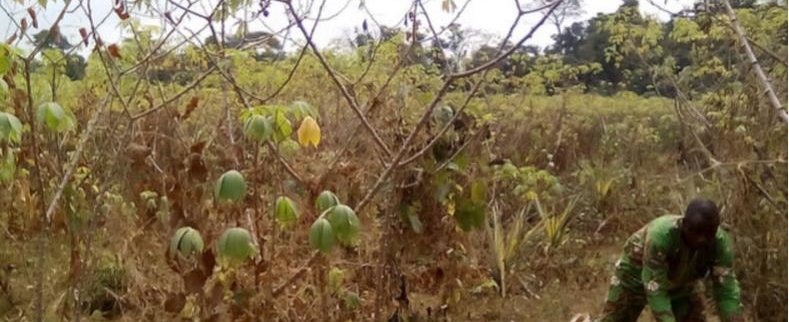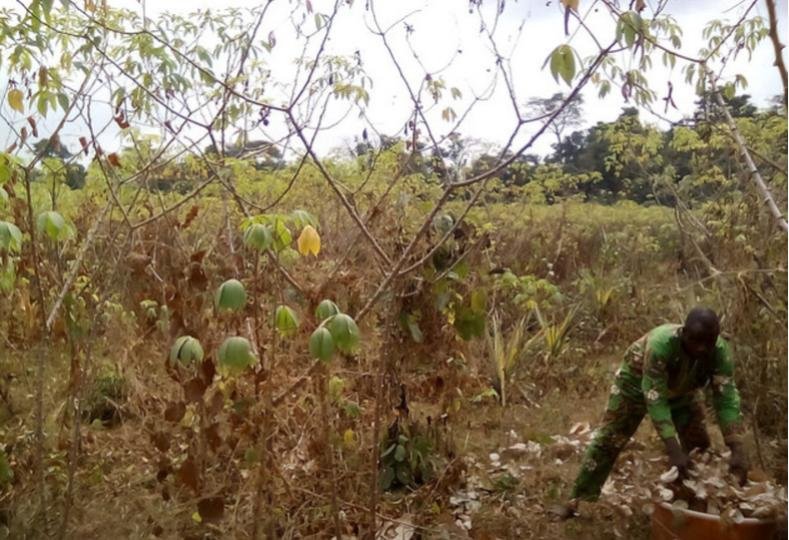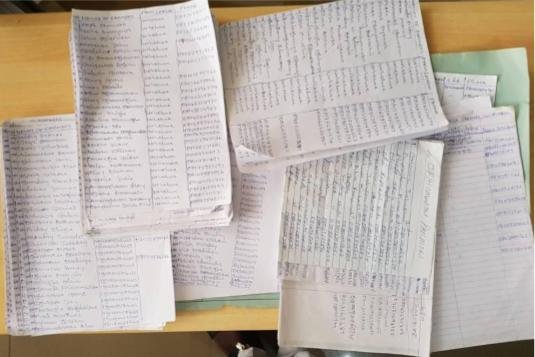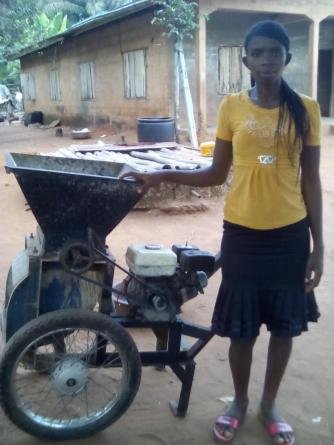

By Nkechi Okwuone
Edo State: one of Nigeria’s biggest agricultural producers
Nigeria has historically had a successful agricultural sector, vastly due to its fertile land and warm climate. With the country in recession, there have been calls to capitalise on Nigeria’s success in agriculture to strengthen the country’s economy. The state of Edo in southern Nigeria is driving forward this new national initiative by using data and technology.
Edo is one of Nigeria’s most prominent agricultural producers. The state has over 40,000 farmers spread across its territory, with cassava being its most commonly produced product. The state government is looking to introduce policies to strengthen and grow this industry, building on the state’s agricultural success to enhance the social and economic wellbeing of its people.
The problem: many farms didn't collect or keep data
In order to make improvements in the agriculture sector, it is necessary to have a clear picture of what the sector currently looks like. For example, how many farms already exist, where they are, what they sell, what the problems might be, and where the opportunities lie. This can all be deduced by analysing data.
However, data from the sector has typically been sparse, as many farms do not collect or keep any data. This means that the state government has lacked the contextual knowledge necessary to make improvements in the agricultural sector.
The Director of the State Ministry of Agriculture described the problem:
Data plays a key role in decision making and planning [...] Credible primary data is one of the major challenges the [agriculture] sector faces.
The solution: the Edo AgriHub portal
To fill this information gap, the Information Communication Technology Agency created Edo AgriHub (EDAH).
EDAH is a portal which holds data about farmers, farms, crop locations, produce, markets and other data related to the sector.
The data is sourced from key government and agricultural stakeholders such as the Ministry of Agriculture, Information Communication Technology Agency, State Bureau of statistics, farmer’s cooperative agencies and community representatives.
Method: training data collectors with mobile phones
The first step to creating the portal was to gather data on existing farms and produce. Previously, this has been done manually on paper. But as this proved to be time-consuming and subject to the potential for human error, the use of mobile technology was implemented, inputting data onto smartphones.
To gain support from the community, data collectors were trained to engage farmers on the field, speaking in their local languages about the importance of data collection.
Once collected, this data was then uploaded to the new EDAH platform.

Impact: rich data for farmers, transparency and government planning
Since the project’s inception, the team has successfully collected data from 3706 farms in Edo, as well as a range of information about agribusiness markets in local areas. EDAH is now the state’s official repository of agriculture data and information.
After some initial scepticism among the community, there has been growing excitement about what the data could be used for. One community member in Orhionmwon remarked, “no one has ever collected farm coordinates or data as rich as this from our community”, and expressed hopes that “the government and private organisations will work with this”.
Many farmers such as Mrs Eghosa, recognise that opening or sharing their farm data can help to organise products and activities with other stakeholders, gain transparency over production lines and be incorporated into the government’s budget planning.

As a result of this partnership between government and stakeholders in the agriculture sector, EDAH has been included in the government’s 2017 budget, and data on the portal is currently being utilised for planning purposes. The new and innovative method of mobile data collection is also now being employed across other sectors, to strengthen Nigeria’s data infrastructure and boost innovation.
Next steps
Next, we are hoping to expand the project to include the remaining 17 local governments in Edo. We will engage the local community of developers, encouraging them to innovate using our data. We will also share our data with organisations who are working to empower farmers in the state.
Find out more
There are many ways you can follow our journey:
- Connect with us on Twitter
- Watch interviews with our farmers and stakeholders on YouTube
- View our project in pictures on Flickr
To find out more or discuss potential for partnerships, contact the team at [email protected].
Edo AgriHub has been supported by the ODI’s mini-grant programme, which included remote mentoring and a grant of £6,500 to support the development and implementation of the project. The mini-grant programme was supported by the Open Data for Development (OD4D) programme, a partnership funded by Canada’s International Development Research Centre (IDRC), the World Bank, United Kingdom’s Department for International Development (DFID), and Global Affairs Canada (GAC).